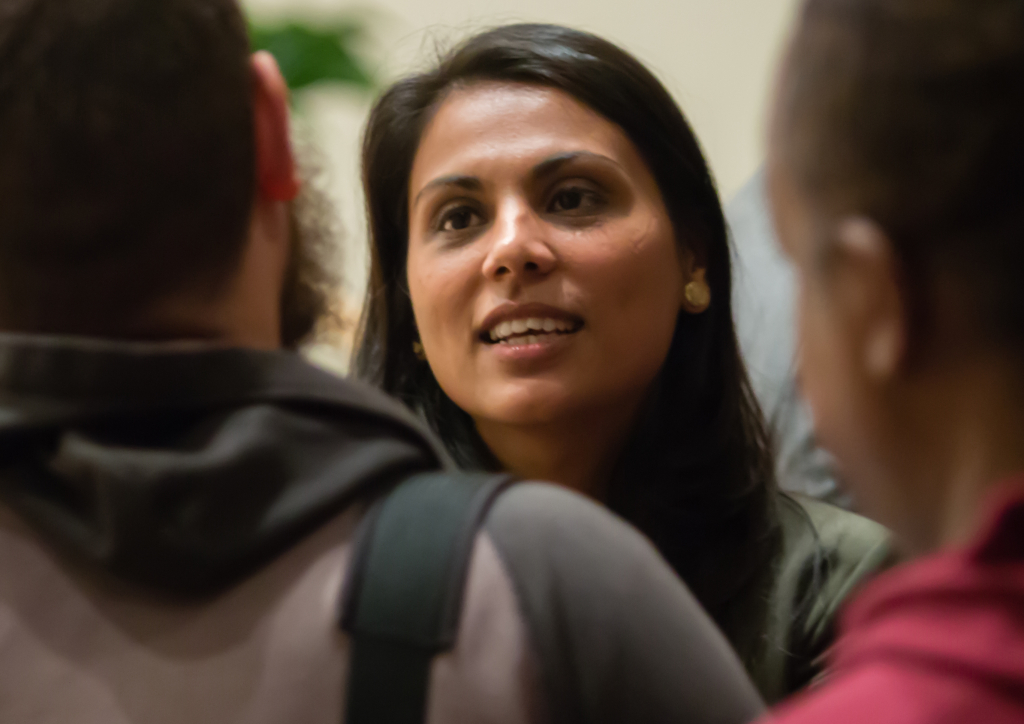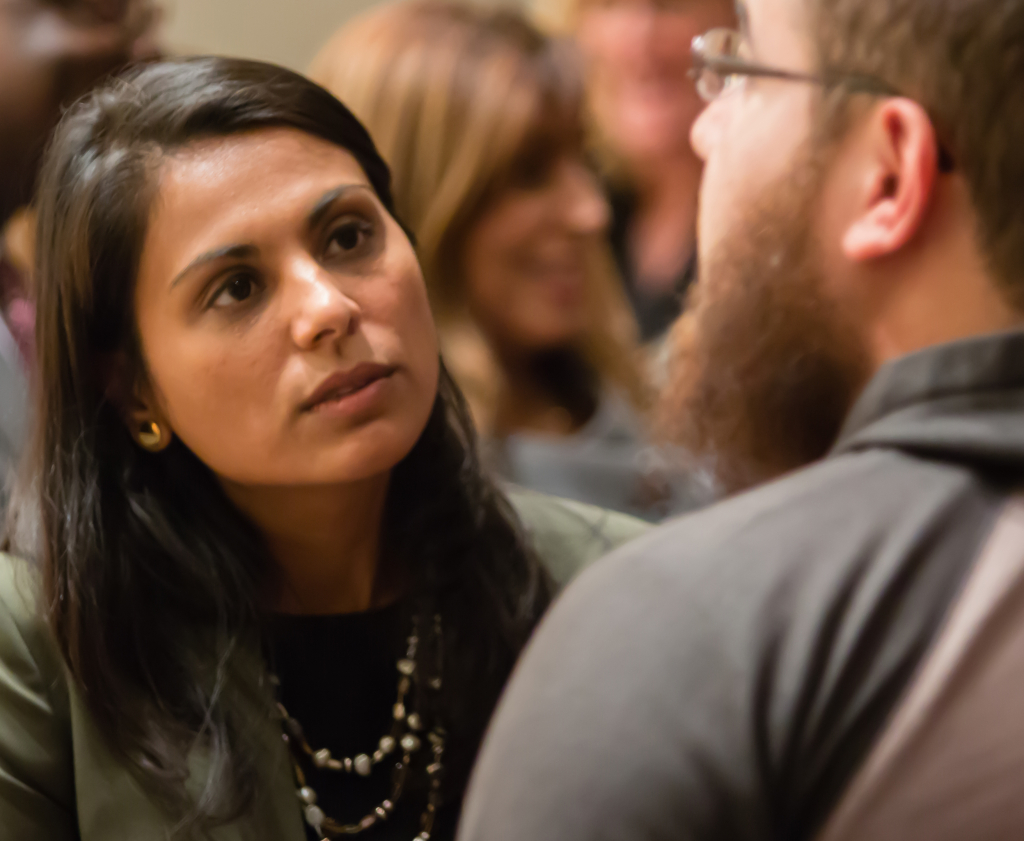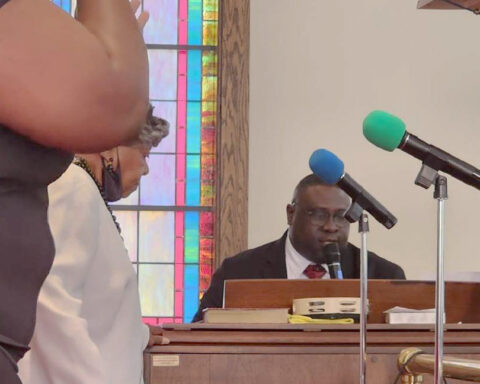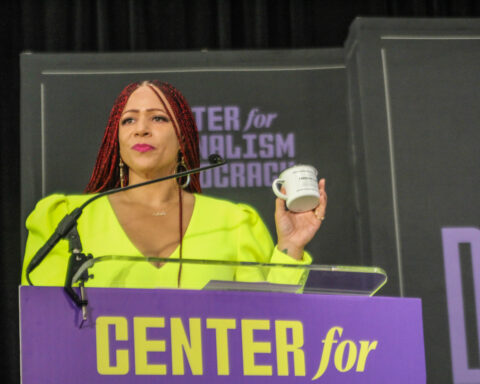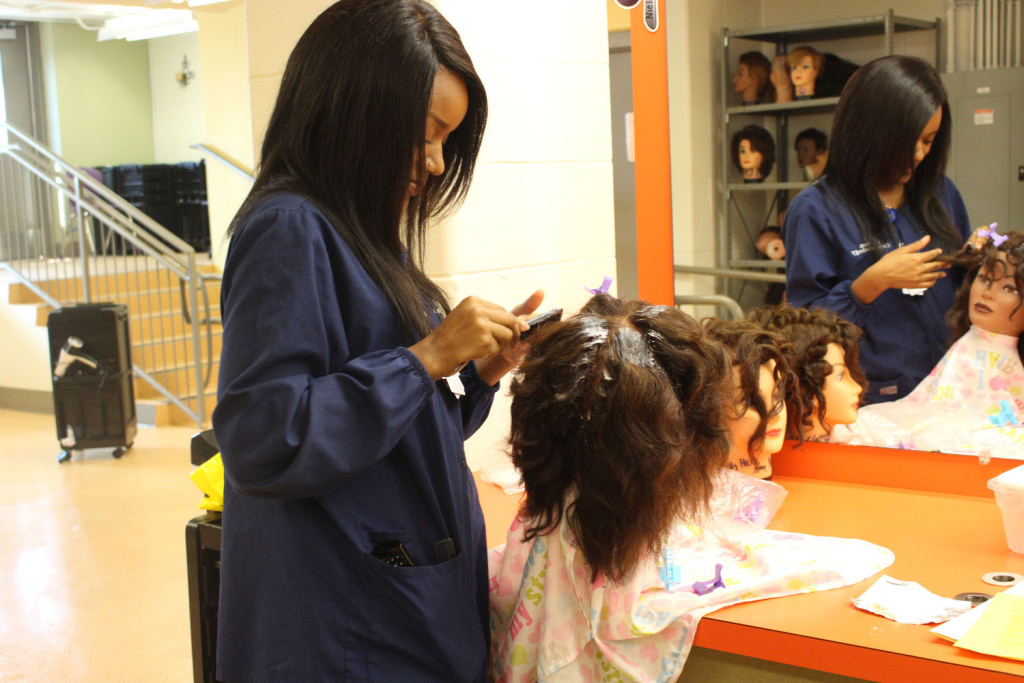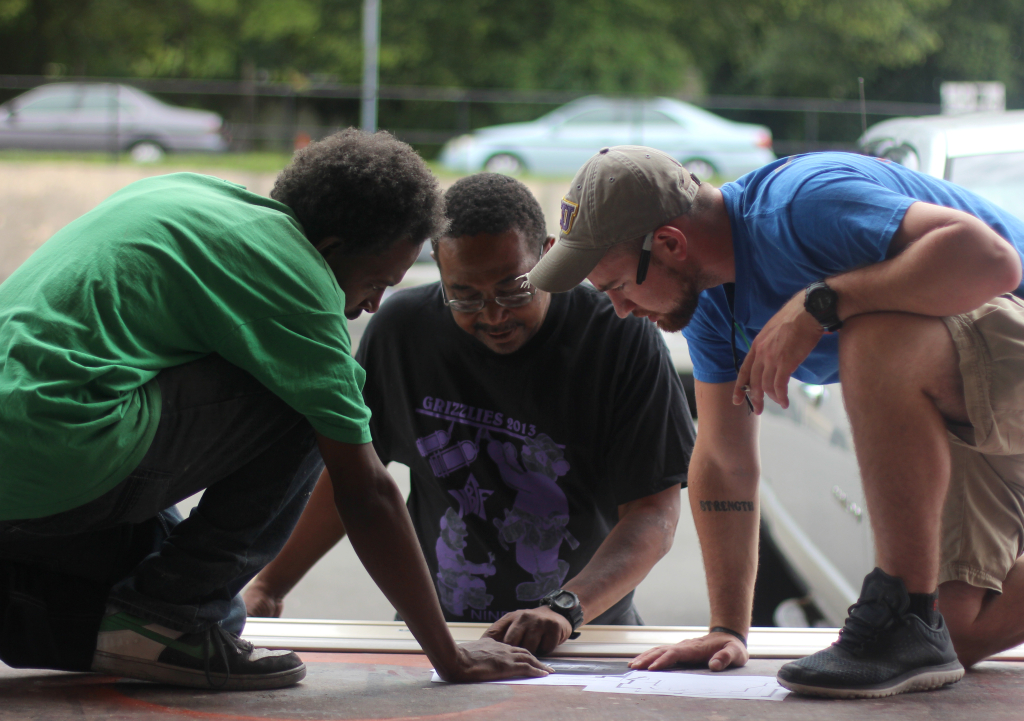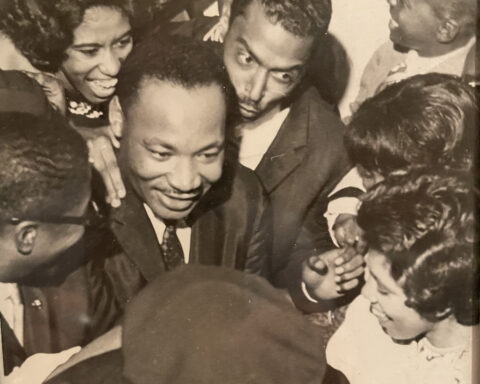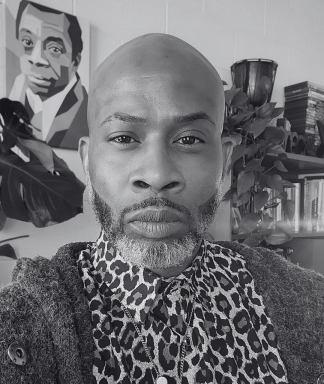When West Africa was struck with an Ebola epidemic in the summer of 2014, infectious disease expert Dr. Nahid Bhadelia put her life on the line helping victims in Sierra Leone – for six months.
“If you don’t do what you are there to do, there is no one else around,” said Bhadelia, when asked if she was ever afraid of catching Ebola. “Yes,” she acknowledged, she was often “terrified,” especially when her medical colleagues in Kenema began catching Ebola.
Bhadelia, a physician and assistant professor at Boston University School of Medicine, came to N.C. Central University on Oct. 27 as the first keynote speaker for the Blue Cross and Blue Shield of North Carolina Speaker Series on Global Health. In Bhadelia’s presentation, “Emerging Pathogens, Health Systems and the Ebola Epidemic,” she recounted her experiences in Sierra Leone treating Ebola patients.
Bhadelia framed her personal experience in the Ebola crisis within the larger issue facing humanity: the dangers of infectious diseases in a global interconnected world. According to Bhadelia, infectious diseases can be caused by viral or bacterial pathogens.
“It’s not just science. It’s culture and economics that are involved with pathogens,” said Bhadelia, explaining that it’s sometimes difficult to halt the spread of infectious diseases.
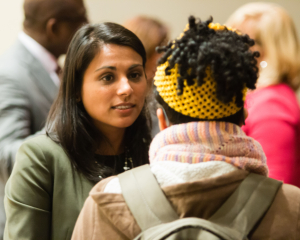
Nearly 17 million people die annually from infectious diseases, according to the World Health Organization. At least 30 new diseases have emerged in the last 20 years, threatening the health of millions of people, the WHO said in a press release.
The Centers for Disease Control and Prevention describes Ebola as a rare and deadly disease caused by infection with one of several Ebola virus strains. Ebola, which, according to Bhadelia, is not as easily transmittable as pneumonia and tuberculosis, is contracted through contact with bodily fluids. The symptoms of the viruses include fever, chills, diarrhea, and complications with pregnancies.
According to the CDC Ebola is a zoonotic disease, meaning it is thought to have jumped from animals such as fruit bats or primates (apes and monkeys) to humans. The CDC said 6 out of every 10 infectious diseases in humans are spread from animals.
“Since 1980, 45 new human infectious diseases have been transferred from animals to humans,” said Bhadelia, adding that this is often because humans are increasingly encroaching into animal habitats.
Bhadelia has been working with infectious diseases such as HIV/AIDS, tuberculosis and malaria since 1999. She said the Ebola virus was discovered in 1976.
In her presentation she described the biggest problems she and others faced trying to help Ebola victims. These included: a lack of investment in research and poor data, shortages in lab capacity, medical staff and facilities, community distrust of outsiders, lack of education, a panicked response to the crisis, and a failure to develop systems to respond to healthcare worker illness in national and international staff.
Ebola victims require constant attention. But in the West African crisis there was shortage of medical staff – and because of the heat they could wear protective suits for only 1-2 hours at a stretch.
Things turned from bad to terrible when airlines cancelled flights into Sierra Leone, cutting off the flow of medical supplies and equipment.
“We had to cut up tarp for aprons,” said Bhadelia. “People die of Ebola, not from Ebola,” said Bhadelia, explaining that Ebola victims can be saved with proper care and adequate investments.
According to the CDC, 12,054 lab-confirmed cases of Ebola were diagnosed in Guinea and Sierra Leone in 2014, resulting in 6,491 deaths.
Bhadelia discussed the ethical dilemmas for clinicians in the Ebola epidemic. She described the criteria for determining who was admitted as an Ebola patient. She said there were times when they had to limit patient care because of concerns for the physicians’ safety.
Bhadelia said the real heroes of the 2014-2015 Ebola crisis were the local health care officials who put their lives in danger for the well-being of the patients, often without access to protective suits. She said the hardest part of her job was treating healthcare workers with whom she had been working side by side.
“Thirty-five of 50 healthcare workers in Kenema who contracted Ebola died,” said Bhadelia about her clinic.
The next speakers for the BCBSNC Speaker Series on Global Health will be Dr. Keith Martin, executive director of the Consortium of Universities for Global Health and Bobby Jefferson, director of the Center for Development Informatics, on Nov. 12.

